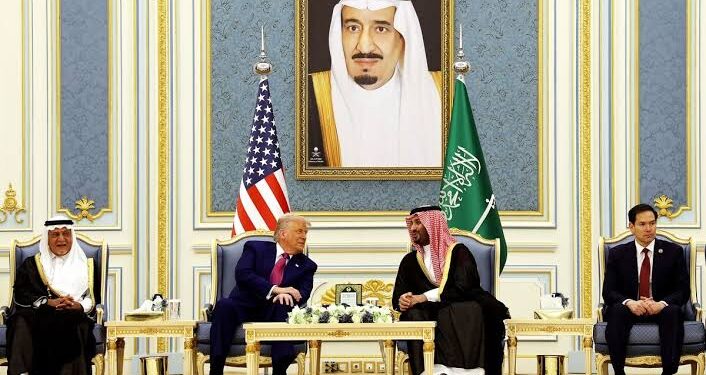On his first overseas trip of his second term, President Donald Trump made it clear: the United States is open for business — without moral lectures.
In a bold speech from Saudi Arabia’s Al-Yamamah Palace, Trump praised Crown Prince Mohammed bin Salman’s modernization drive, dismissed nation-building as a failed fantasy, and signaled a dramatic departure from past US efforts to promote human rights abroad.
“Nation builders wrecked more nations than they built,” Trump said. “We’re done intervening in societies we don’t understand.”
The message: America will prioritize commerce over confrontation, even with authoritarian states — as long as they align economically.
Trump announced an end to sanctions on Syria following the ouster of President Bashar al-Assad, despite the controversial background of new leader Ahmed al-Sharaa, a former jihadist commander. Critics and allies alike raised eyebrows — but some, like Democratic Senator Jeanne Shaheen, cautiously welcomed it as a “chance to check Iran and Russia.”
The approach underscores a broader shift: Trump’s White House has cut foreign aid, downgraded human rights offices, and embraced formerly shunned leaders, including El Salvador’s Nayib Bukele.
Meanwhile, traditional allies like Germany face scrutiny over their treatment of right-wing parties — further proof of Trump’s “America First” realignment.
Backed by a $600 billion Saudi investment pledge, Trump hailed the kingdom’s economic vision, pointing to “skyscrapers in Jeddah, not rubble like Iran.”
“I like [Mohammed bin Salman] a lot — maybe too much,” Trump said.
According to the State Department, Trump’s diplomacy puts “Americans first” by advancing mutual economic interests without dwelling on foreign governments’ records.





























